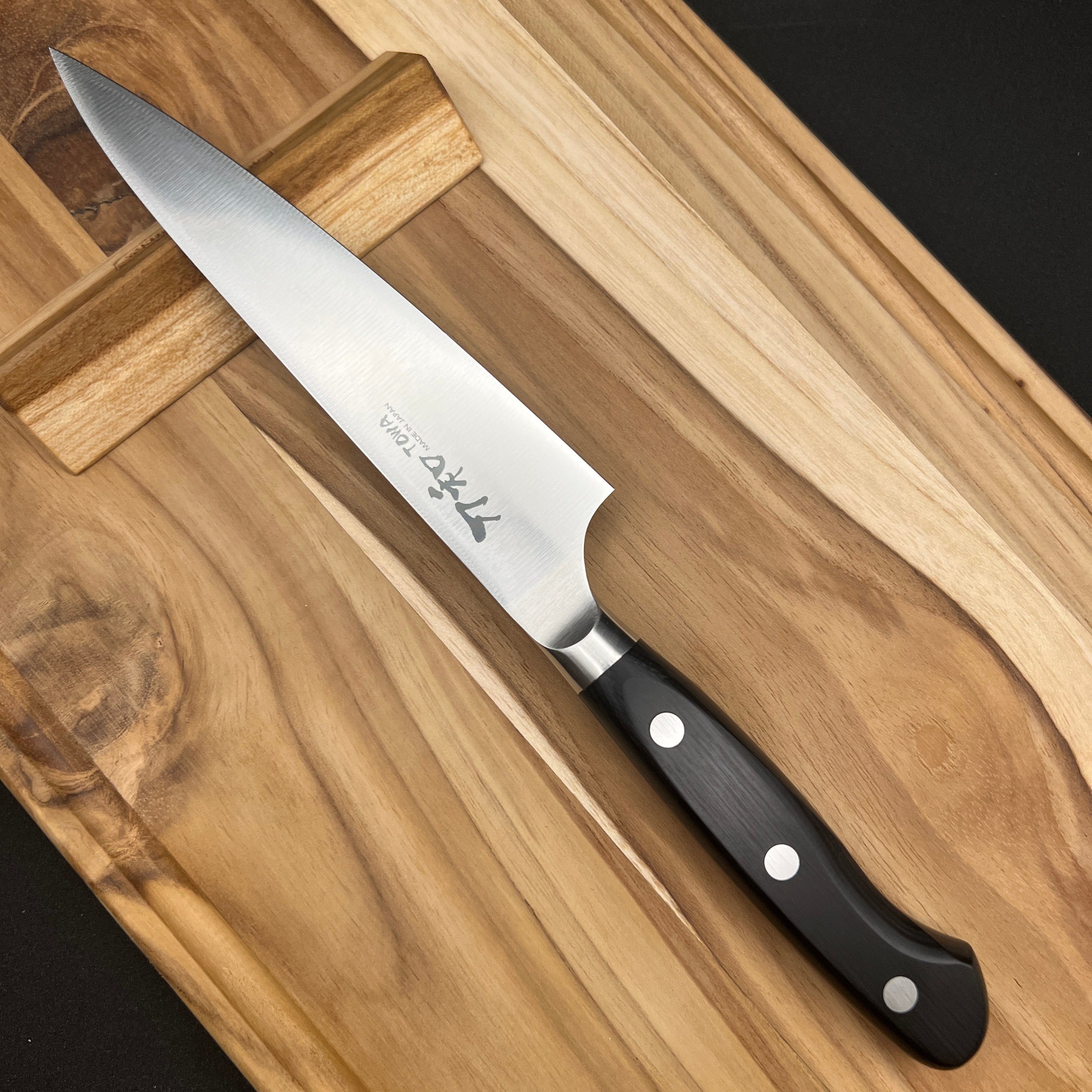
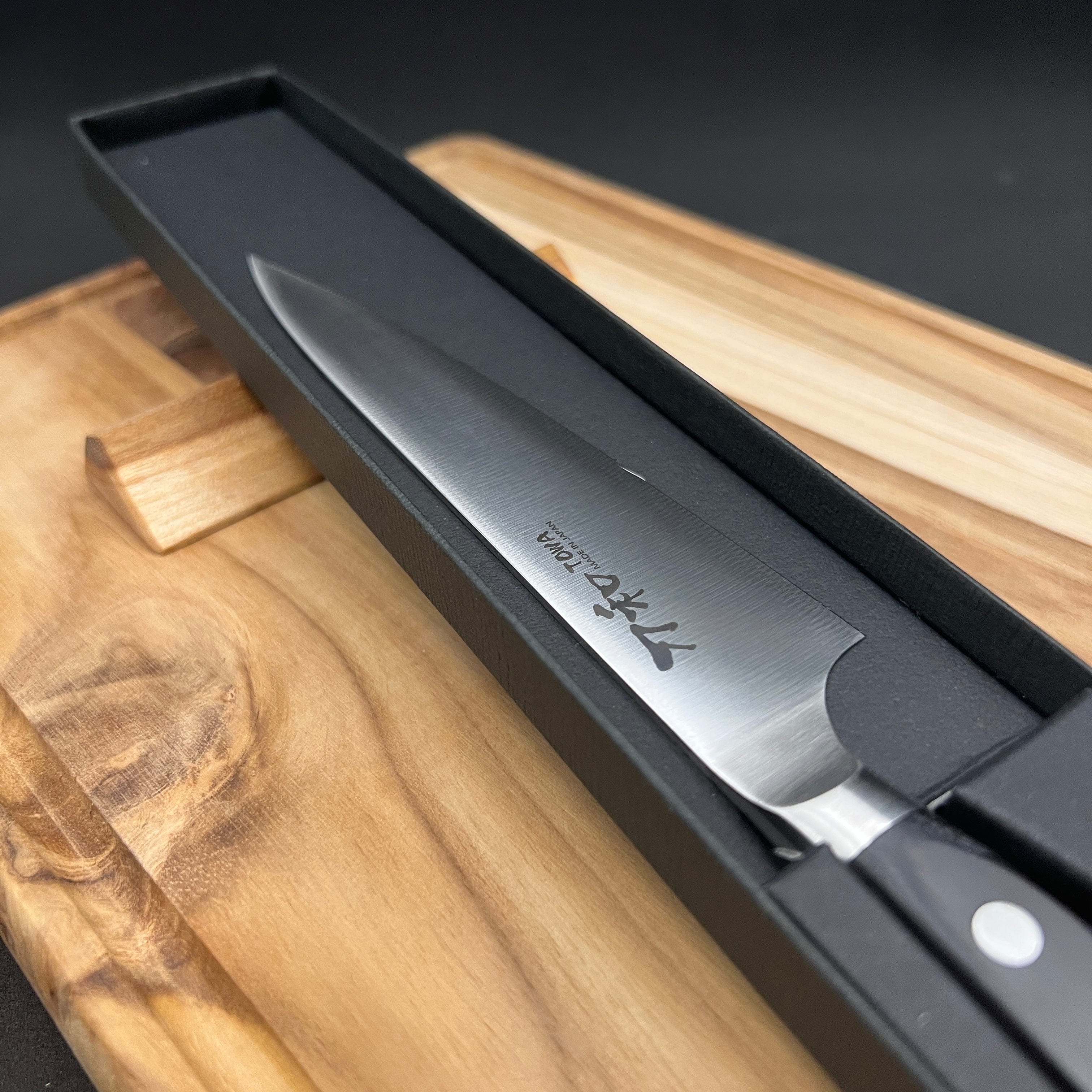
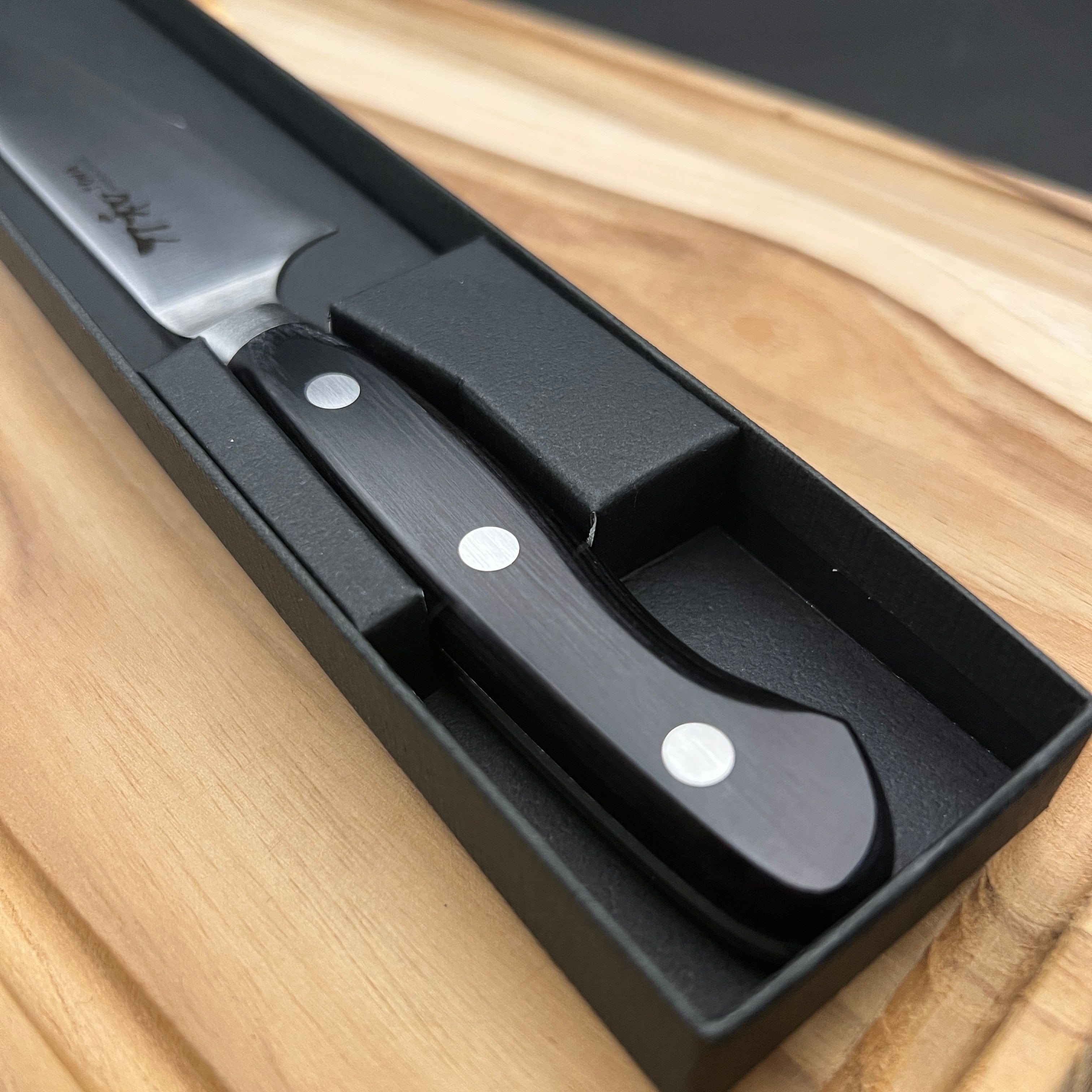
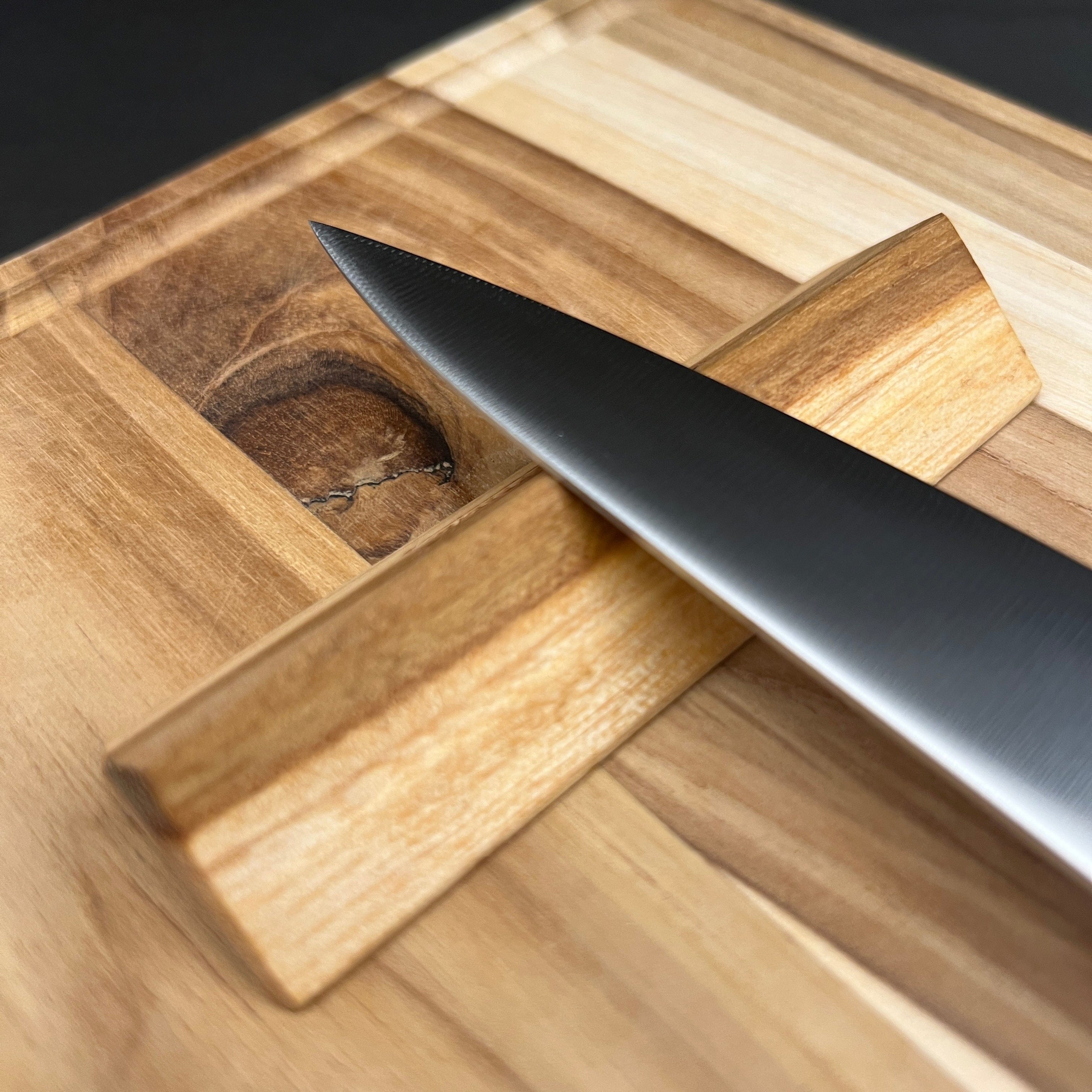
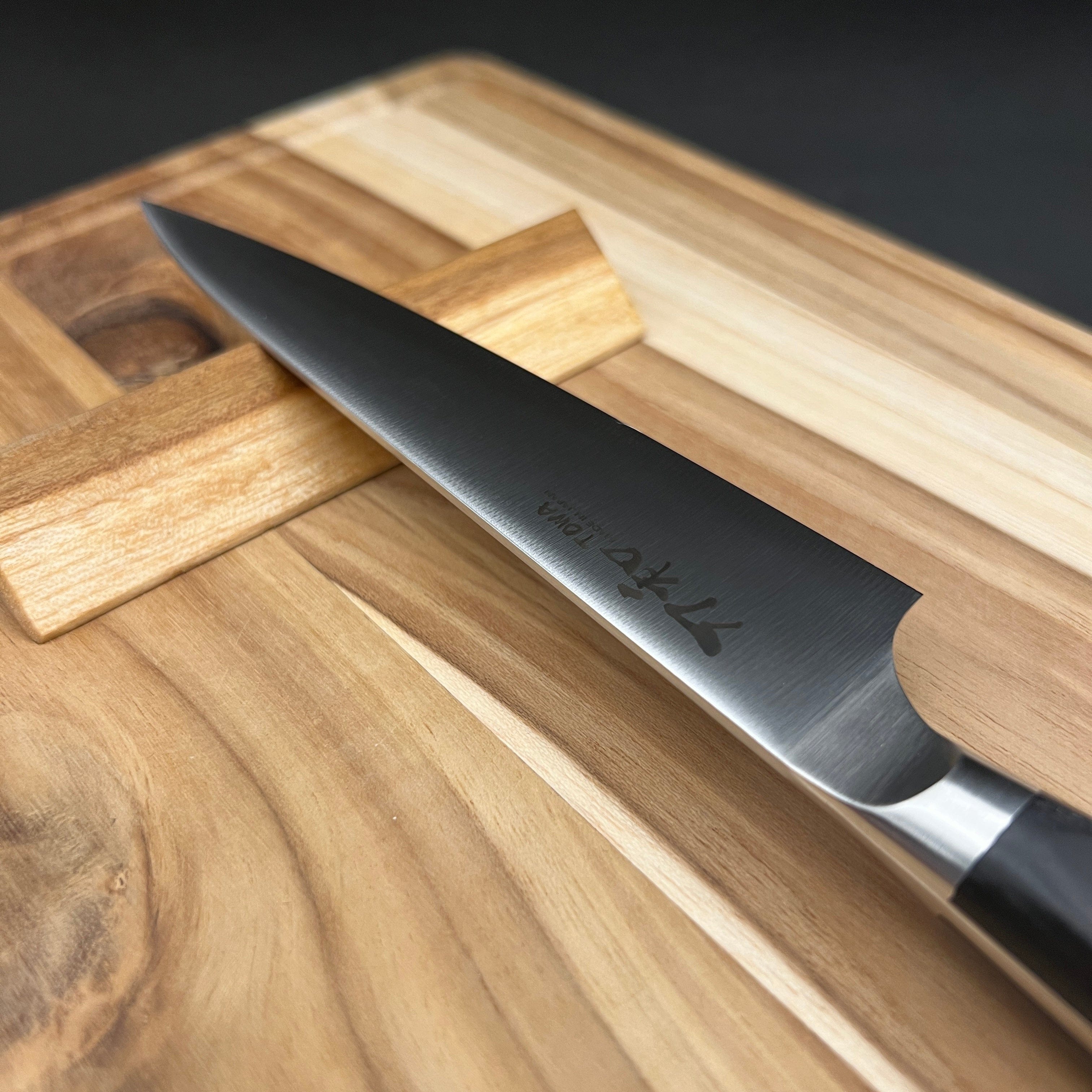
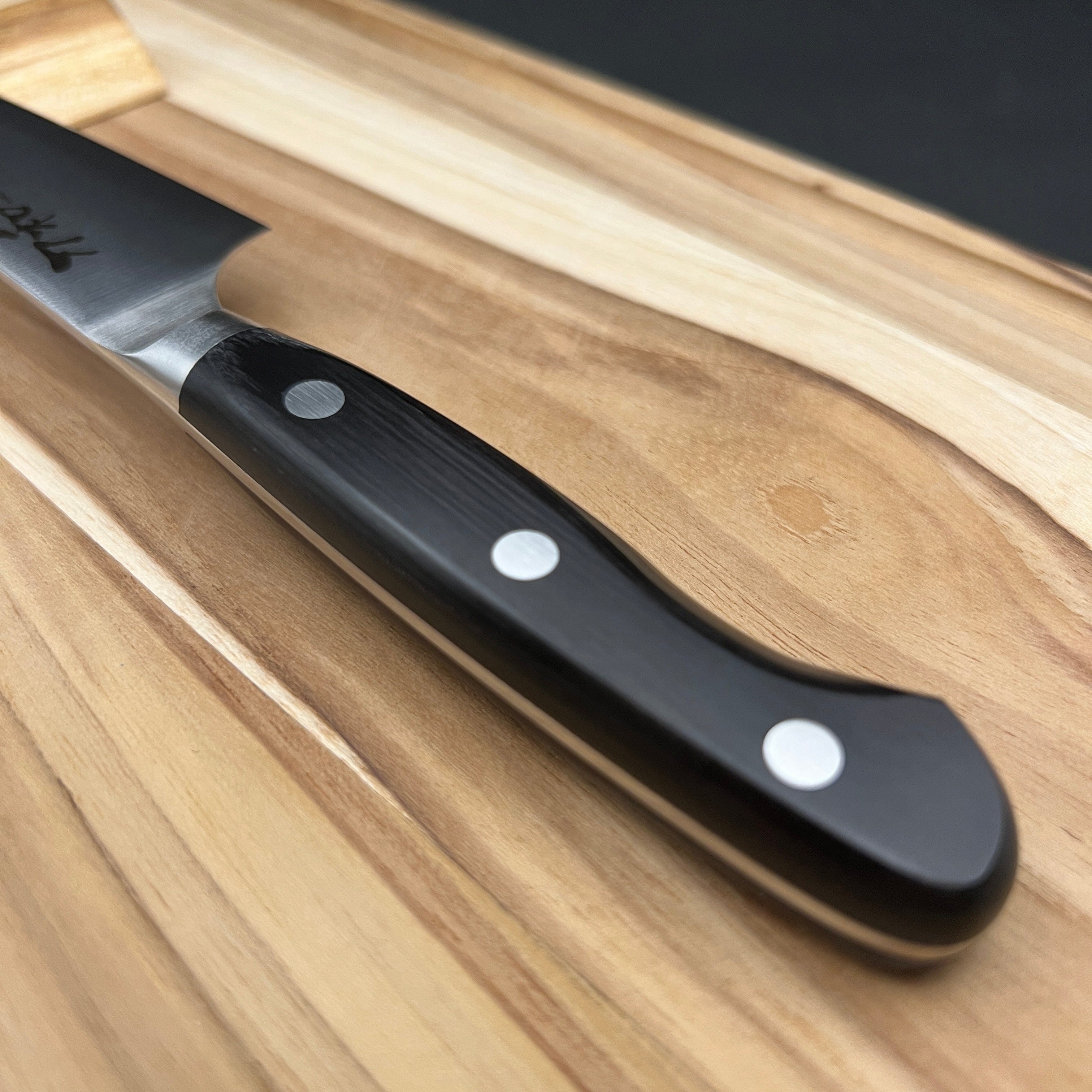
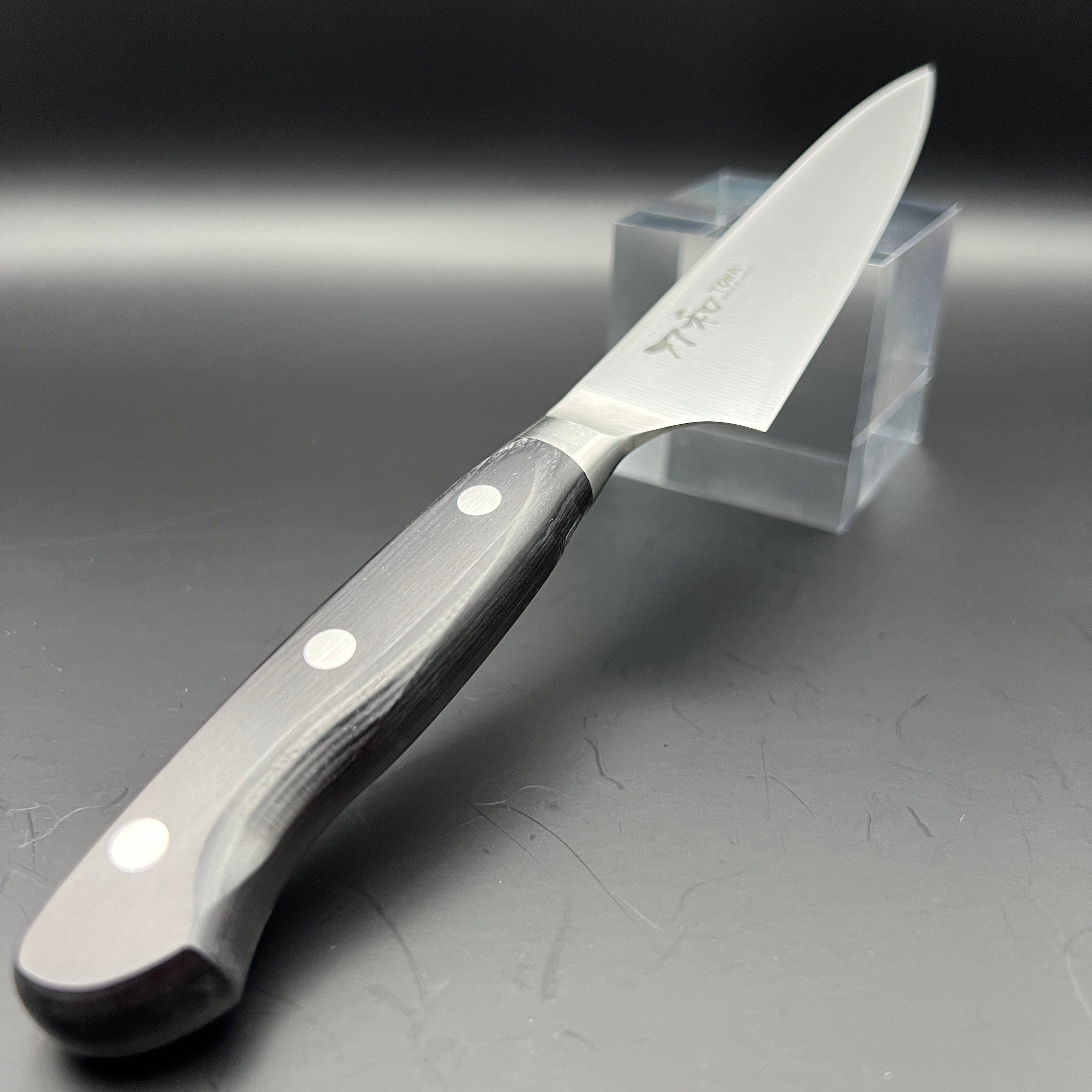
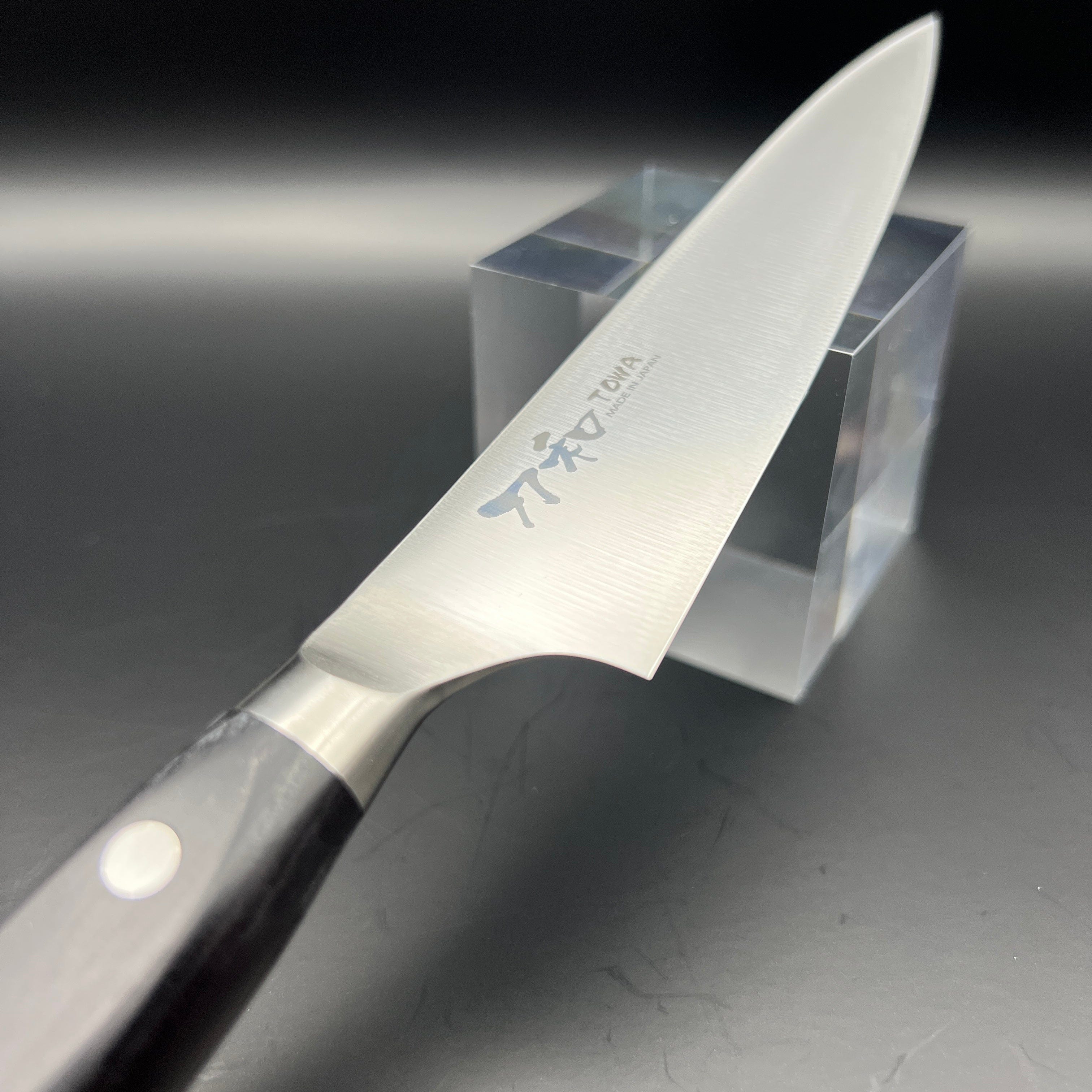
Towa Petty Knife – 4.7 inches (12 cm)
Fast & Secure Delivery from Japan to your Door [Shipping Policy]
Shop Safely with Encrypted Checkout and Verified Gateways.
Pairs well with

Towa Petty Knife – 4.7 inches (12 cm)
A must-have knife in every kitchen
Crafted for control. Built for everyday beauty.
The Towa Petty Knife – 4.7 inches (12 cm) with brim is a compact, high-performance knife designed for detailed prep work, clean slicing, and effortless handling. Hand-finished by skilled artisans in Seki City, Gifu Prefecture—a region renowned for centuries of Japanese blade craftsmanship—this 100% Japanese knife brings together tradition, precision, and thoughtful design in a size perfect for everyday use.
The blade is forged from Special Stainless Steel, a high-grade material known for its excellent edge retention and smooth, razor-sharp performance. Finished with a brim (bolster) at the handle, this knife offers enhanced control and a comfortable grip that supports both speed and accuracy during prep. The result is a well-balanced tool that stays sharp and steady—especially when well cared for and regularly resharpened.
Key features:
- 100% Japanese-made in Seki City by expert cutlery craftsmen
- 4.72 in (12 cm) blade – Ideal for fruits, vegetables, herbs, and decorative cutting
- Special Stainless Steel – Sharp, durable, and easy to maintain
- Brim design – Adds comfort, grip security, and improved balance
- Laminated black plywood handle – Sleek, sturdy, and moisture-resistant
Compact and easy to maneuver, this petty knife excels in kitchens where a full-sized chef’s knife might feel oversized. Whether you’re trimming ginger, chopping scallions, or performing precise decorative cuts, the Towa Petty Knife delivers the accuracy and feel of a true craftsman’s tool.
Product Information
Care instructions
Maker
Note
FAQs
All you need to know about Japanese Knives.
What makes Japanese knives different from Western knives?
Japanese knives typically feature harder steel, thinner and sharper blades, and lighter handles compared to Western knives. These characteristics allow for precision cutting, especially suited for detailed culinary tasks, but require careful maintenance to preserve sharpness and avoid damage.
How should I maintain and sharpen a Japanese knife?
Regularly hand-wash and dry your knife immediately after use to prevent rust and corrosion. Sharpen using a whetstone designed specifically for Japanese knives, maintaining a consistent angle (usually around 15 degrees). Avoid dishwashers and harsh cleaning methods to preserve blade integrity.
Can Japanese knives be used for any type of food preparation?
While versatile, certain Japanese knives are specialized: Gyuto (chef’s knife) handles most ingredients, Santoku excels in chopping vegetables and meats, while Yanagiba is specifically suited for slicing sashimi and seafood. Selecting the right knife enhances performance and preserves blade condition.
Why are Japanese knives often more expensive?
Japanese knives are handcrafted, employing traditional methods and premium high-carbon steel, which contributes to their exceptional sharpness, durability, and aesthetics. This artisanal craftsmanship and the high-quality materials used typically result in higher pricing compared to mass-produced knives.
Are Japanese knives suitable for beginners?
Yes, beginners can effectively use Japanese knives, but it’s essential to start with user-friendly styles like Santoku or Gyuto, known for balanced handling and versatility. Proper care, handling, and regular sharpening practices will ensure a positive experience, even for novices.

